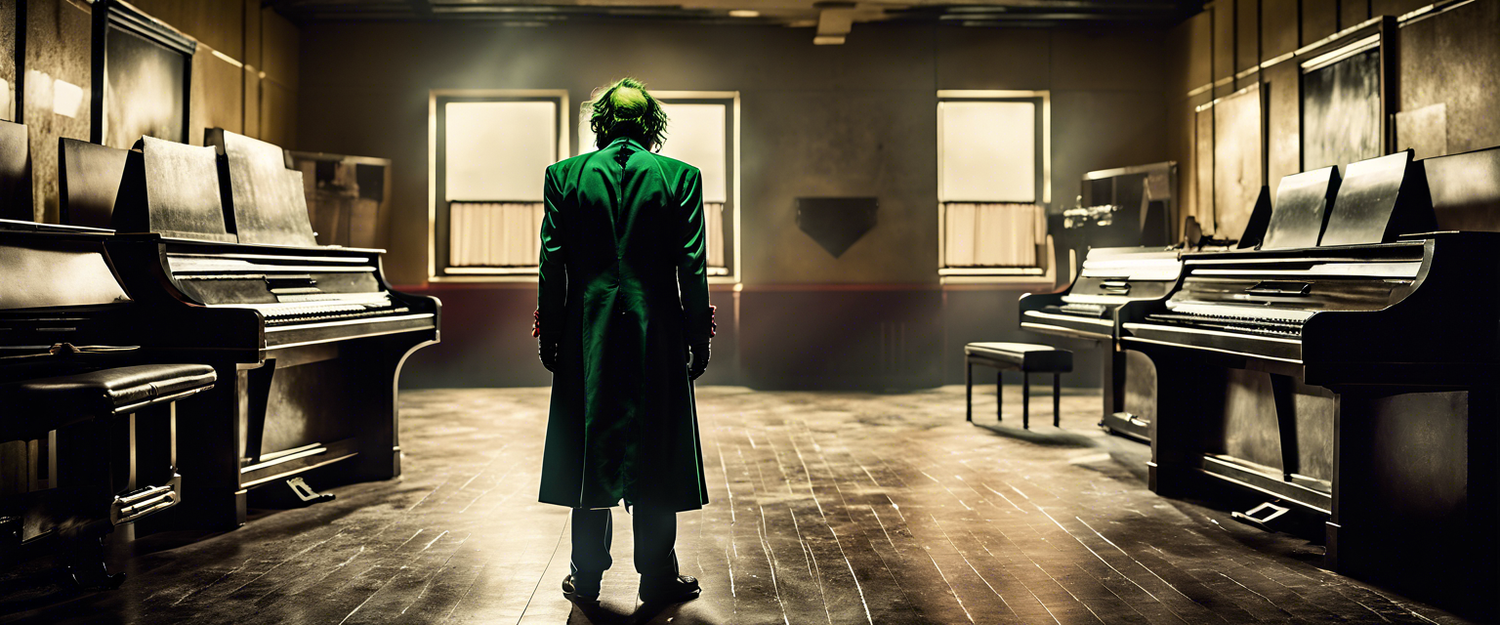Joker: Folie à Deux - A Musical Exploration of Madness
Todd Phillips’ highly anticipated sequel to the 2019 hit Joker, titled Folie à Deux, dives deep into the psyche of its central character, Arthur Fleck (Joaquin Phoenix), while introducing a new musical element to the storyline. Despite the burdens of public fatigue with comic book adaptations, the film seeks to explore complex themes related to fame, mental illness, and the nature of evil in a contemporary context.
The Return of Arthur Fleck
In Folie à Deux, Arthur Fleck finds himself in Gotham City’s infamous Arkham Asylum, two years after his violent rise to infamy. The film opens with Arthur enduring abuse at the hands of prison guards, emphasizing his transformation into a more tragic figure. As public curiosity regarding his murderous exploits grows, the film cleverly juxtaposes Arthur's inward struggle with the societal fascination that surrounds the Joker figure.
From Anti-Hero to Symbol of Despair
While the original Joker framed Arthur as a complicated anti-hero driven by societal neglect, the sequel takes a different approach, presenting him as a product of a disenfranchised society. The narrative challenges viewers to reconsider their idolization of the Joker and critiques the voyeuristic culture that celebrates violence and chaos.
The Introduction of Harley Quinn
In a bold move, Lady Gaga portrays Harleen "Lee" Quinzel, who stands as both a love interest and a symbol in Arthur's life. Unlike traditional depictions of Harley Quinn as a psychiatrist, this film returns her to her roots as an inmate within Arkham, infusing the narrative with music and vibrancy amidst its grim themes.
The Complexity of Their Relationship
Arthur's interactions with Lee illustrate a volatile mix of affection and insecurity, showcasing her star power that often overshadows him. The film touches on themes of dependency and the desire for validation, despite her underdeveloped role within the story. Critics point out how the film's musical numbers, though intended to elevate the narrative, often lack the whimsical charm expected from a musical.
A Courtroom Drama with Musical Undertones
At its core, Folie à Deux can be characterized as a courtroom drama, focusing on Arthur’s battle against the justice system. With Harvey Dent (Harry Lawtey) seeking the death penalty, the weight of his past actions looms large, interspersed with moments of musical escapism that are met with mixed reviews. The juxtaposition between grim realities and musical fantasy introduces an interesting yet uneven tonal balance.
Musical Numbers and Audience Reception
Much criticism has been directed at the film's musical segments, perceived as lacking in creativity and vivacity. Unlike typical musicals that transport viewers into vibrant realms, the songs in Folie à Deux often feel chaotic and disjointed, failing to elicit the expected emotional response.
Conclusion: A Distinct Tone
Joker: Folie à Deux has undoubtedly etched its own identity within the DC Universe, embracing a darker, more tragic tone than its predecessor. While it raises interesting questions about fame, identity, and morality, it ultimately leaves viewers pondering the implications of hero worship and the cost of celebrity. As the film illustrates, every comedic journey can lead to a somber conclusion, serving as a reminder that even the greatest of performers may face the harshest of realities.
As a final note, if this film has piqued your interest in the complexities of mental health representations in mainstream media or the cultural implications of comic book adaptations, share your thoughts and join the discussion below!



コメントを書く
全てのコメントは、掲載前にモデレートされます
このサイトはhCaptchaによって保護されており、hCaptchaプライバシーポリシーおよび利用規約が適用されます。